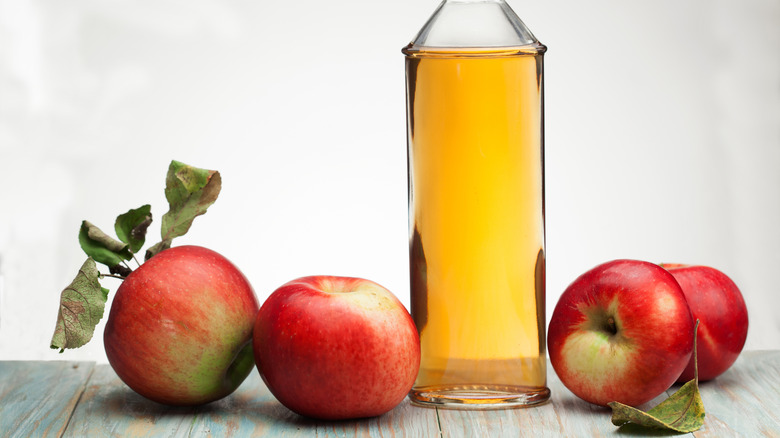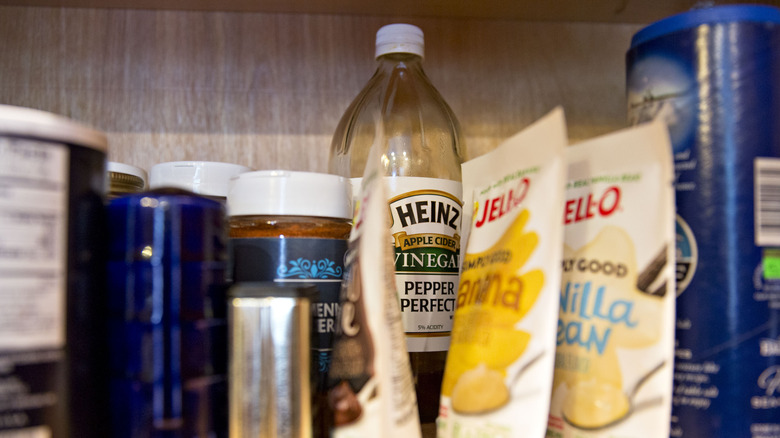Here's How Long You Can Keep A Bottle Of Apple Cider Vinegar
The benefits of apple cider vinegar are bountiful. A myriad of advantages of the pungent potion are not only known — they're supported with evidence.
Per UChicago Medicine, apple cider vinegar helps regulate blood sugar and can aid in the treatment of diabetes. It helps keep your raw lettuces safe by killing off any potential bacteria, so whipping it up into a salad dressing isn't a bad idea. It may also help with weight loss by potentially reducing your appetite, though the studies on this are admittedly limited at this time.
At this point, we all know we could experience some gains from adding a splash or two of the tangy stuff to our diets from time-to-time. Which raises the question — once you pick up a bottle of apple cider vinegar, how long can you keep it in your pantry before it starts to go bad? Before answering that question, understanding how vinegar is made is helpful to explore. The key to any bottle's shelf-life lies in the process.
The science of apple cider vinegar
Vinegars are made via fermentation. For this fermentation to occur and result in vinegar, yeast feeds on the sugar in the liquid of a fruit, vegetable, rice, or grain. In the case of apple cider vinegar, they feed on — you guessed it — apples, specifically crushed apples in the form of apple juice, per WebMD. The yeast eats the sugar in the liquid from the plant product and it becomes an alcohol.
When oxygen is introduced to the alcohol, natural bacteria ferment the liquid for a few weeks or months, breaking down the alcohol into acetic acid and turning it into vinegar. In order for this liquid to be deemed a vinegar by the U.S. Food and Drug Administration, the liquid must be at least 4 percent acetic acid (via Harvard School of Public Health).
There are two types of apple cider vinegars you'll come across on store shelves — pasteurized and filtered, or raw and unfiltered. The raw variety is cloudy and contains the "mother," which is just bacteria and yeast from the fermentation process.
How long can you keep apple cider vinegar and how to store it properly
Thanks to all of that acetic acid formed during the fermentation process, apple cider vinegar has a long and healthy shelf life — indefinite, in fact, per Healthline. It also has antimicrobial properties which kill off any potential pathogens and keeps it safe for consumption for years. As long as it's kept in a cool, dark place like your pantry, a closed bottle of apple cider vinegar will retain its flavor, nutrition, and integrity forever. There is no need to pop it in the refrigerator — doing so will not offer any benefits other than adding a chill.
You'll often come across an expiration date on the bottles, thanks to Food and Drug Administration regulations, but there is no need to adhere to the timestamp. That bottle of apple cider vinegar preserves itself and is perfectly safe to consume (via Does It Go Bad).


